
Earlier this week I posted an interview with the guys from IO Interactive about Hitman: Absolution. Well, Agent 47 isn’t the only Eidos game star returning to consoles – Lara Croft is also returning (albeit from a shorter absence) in a completely new Tomb Raider that takes the series in a grittier new direction. I recently caught up with Noah Hughes, creative director Crystal Dynamics, to explore this new adventure.
How does it feel to be bringing Lara back in an all-new take on the Tomb Raider series?
Noah Hughes: It’s an honor to be able to not only work with Lara Croft and Tomb Raider, but also to be able to reboot the franchise. I’ve been at developer Crystal Dynamics for a while now, and we’ve had the pleasure of making a few games starring Lara. We’ve learned a lot. To be able to distill everything we want to do with the franchise into an entirely fresh take is inspiring.
So it’s a totally new direction for the series?
NH: It is. It’s a reboot and not directly related to the timeline of Lara as such, but it will touch on familiar elements of her character. You’ll see her grow into the hero figure that fans know and love.
Is it going to reference the events of past games at all?
NH: It starts a whole different timeline. There’s not necessarily an assumption it will connect directly to past events. We are projecting our own Lara, taking this origins story, recreating and her launching her off into a new adventure. We love catering to some of the fan favourites, but we’re not beholden to all of the story points within the series. We like playing with the signature Tomb Raider themes from this new angle.
I saw the use of an Instinct system in the game, similar to fellow Square Enix title Hitman: Absolution. Is that the result of sharing between studios?
NH: We actually share a lot of assets between studios. The guys at [Hitman: Absolution developer] IO Interactive are such a talented bunch. Having said that, the idea of the Lara’s intuition, this detective-like ability, is something we’ve admired in a number of games, but what’s important to us is the way fans play through this tale of survival. We’re really going to be selling this idea of Lara fighting and scraping through the unknown.
Who’s the resident physics genius responsible for the grand puzzle set pieces?
NH: One of the great things about working on a game of this size is that you attract people with all kinds of different backgrounds. These people then step up and become champions of various disciplines. The environmental challenges that we present and the physics of any given situation determine how you interact with the world.
Devising these puzzles is one of the more complex level design problems that we tackle, so it is something that we will not only get our best minds on, but iterate a lot – that means we’ll put something in, play with the system, try to figure out what the players would do and go from there.
Is the climbing axe a tool Lara constantly has access to?
NH: Yes, that’s an example of one of our gear-ups. Lara gets a gear item and you’ll have that available to you for the rest of the game, along with whatever abilities that brings to the table. On the game design side of it, when we give you gear like that, it really is multifunctional. The obvious application of it is as a climbing aid, but there’s a heap of other uses for it besides.
So is Lara now a serious heroine, after the cartoonish adventures of the 90s?
NH: Rather than change her for change’s sake, we just decided to make her as real as we could. Everything then kind of came out of that – the character design, the story we were telling, the whole look of the game. We really tried to ground that in a human experience. That was the starting point.
You can see that once you start down the road of bringing her to life, it can influence so much of the rest of the game. So, yes, she is, but that was the result of the changes we made, not the cause.
How far did you push Lara’s pain threshold?
NH: Pain and hardship are what help forge Lara into this hero – I mean, she’s a fledgling archaeologist who becomes the Tomb Raider. There has to be some trial and tribulation! Ultimately the boundary was: what delivers that sense of survival at all costs, without being gratuitous?
Where did inspiration for this environment come from?
NH: What we try to do is trace our initial ideas back to their roots. The idea we keep coming back to is that of survival being a core human instinct. We want the history of a place or a situation to really hook you in and pull you through the story.
We also take inspiration from a number of real-world stories. You hear about these people who have gone through extraordinary situations and come out alive. Films like Danny Boyle’s 127 Hours are where we’ve been looking. That’s what we’re trying to capture, that core human spirit.



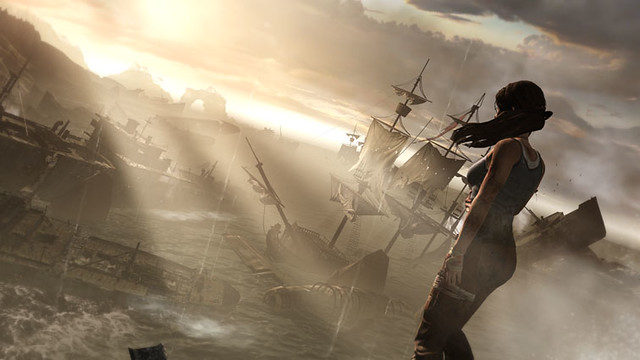
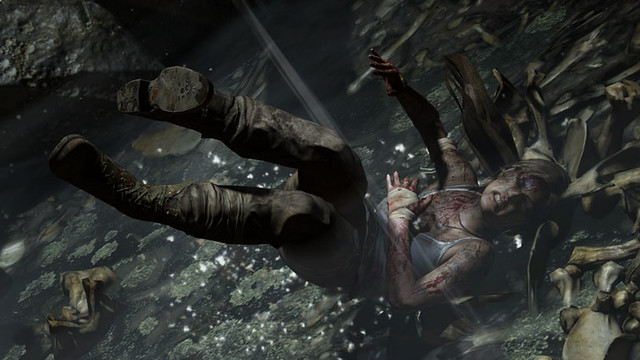
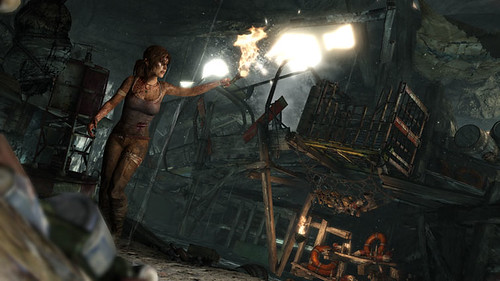
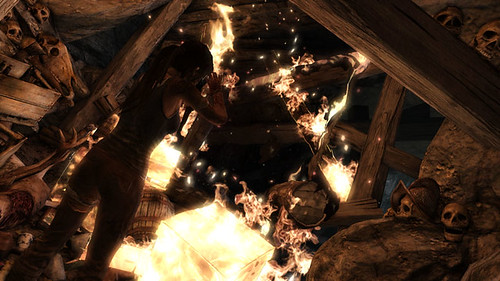
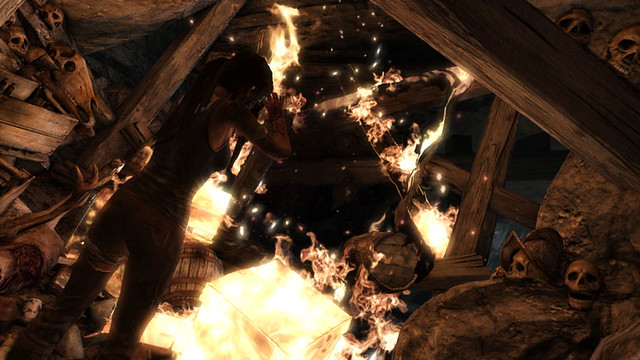








Comments are closed.
44 Comments
Loading More Comments